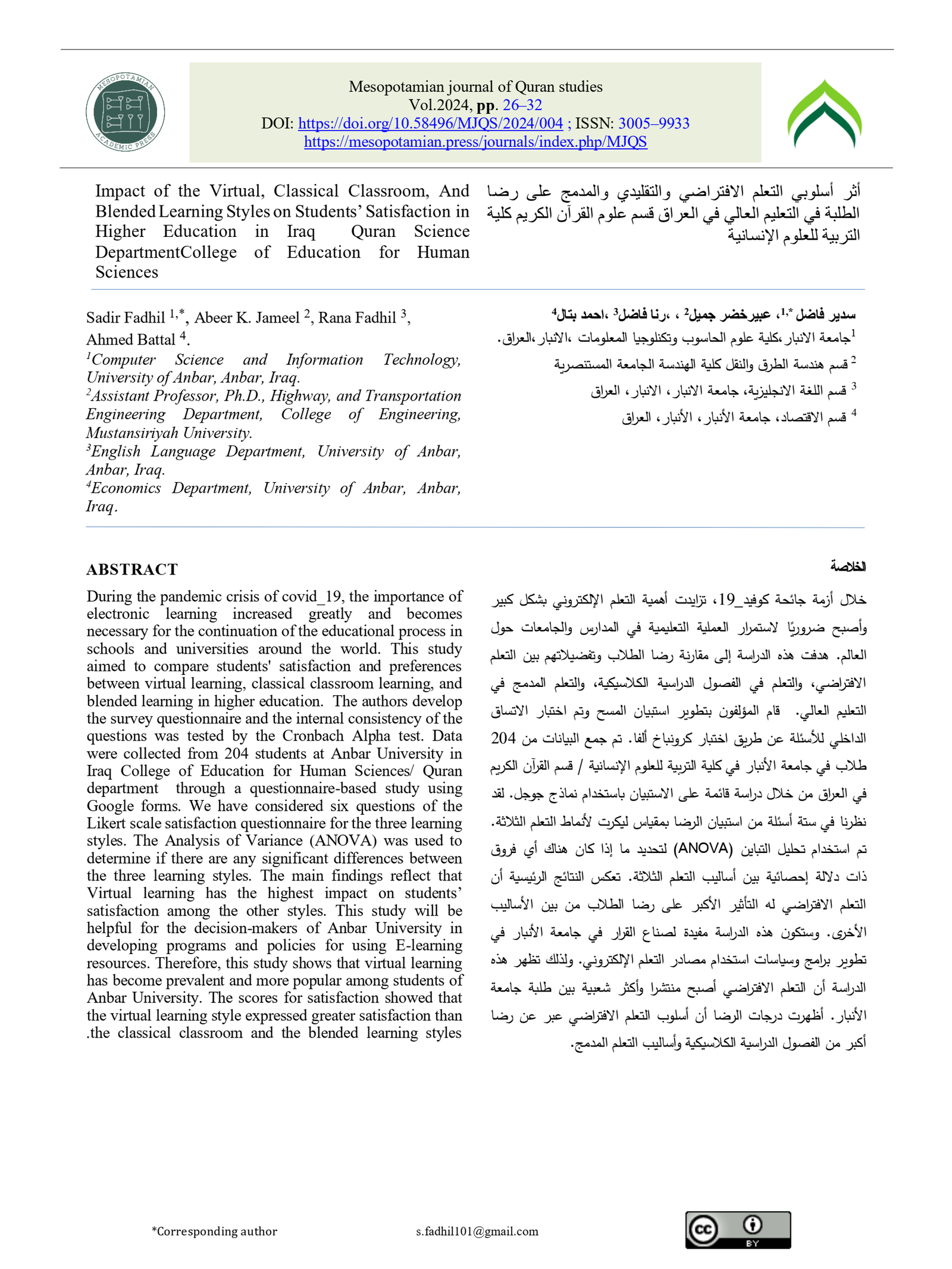Impact of the Virtual, Classical Classroom, And Blended Learning Styles on Students’ Satisfaction in Higher Education in Iraq Quran Science DepartmentCollege of Education for Human Sciences
Main Article Content
Abstract
During the pandemic crisis of covid_19, the importance of electronic learning increased greatly and becomes necessary for the continuation of the educational process in schools and universities around the world. This study aimed to compare students' satisfaction and preferences between virtual learning, classical classroom learning, and blended learning in higher education. The authors develop the survey questionnaire and the internal consistency of the questions was tested by the Cronbach Alpha test. Data were collected from 204 students at Anbar University in Iraq College of Education for Human Sciences/ Quran department through a questionnaire-based study using Google forms. We have considered six questions of the Likert scale satisfaction questionnaire for the three learning styles. The Analysis of Variance (ANOVA) was used to determine if there are any significant differences between the three learning styles. The main findings reflect that Virtual learning has the highest impact on students’ satisfaction among the other styles. This study will be helpful for the decision-makers of Anbar University in developing programs and policies for using E-learning resources. Therefore, this study shows that virtual learning has become prevalent and more popular among students of Anbar University. The scores for satisfaction showed that the virtual learning style expressed greater satisfaction than the classical classroom and the blended learning styles
Article Details
Issue
Section

This work is licensed under a Creative Commons Attribution-ShareAlike 4.0 International License.
Deprecated: json_decode(): Passing null to parameter #1 ($json) of type string is deprecated in /home/u273879158/domains/mesopotamian.press/public_html/journals/plugins/generic/citations/CitationsPlugin.php on line 68
